Spatial awareness Normal Geometry Worksheets for Ages 4-8
9 filtered results
-
From - To
Explore our Spatial Awareness Normal Geometry Worksheets designed for children ages 4-8. These engaging and educational worksheets help young learners develop essential spatial awareness skills through fun and interactive geometry activities. Kids will enhance their ability to recognize shapes, understand spatial relationships, and navigate spaces effectively. Perfect for early grade children, each worksheet is crafted to support foundational geometry knowledge and critical thinking. Whether used in the classroom or at home, these worksheets are an excellent resource for promoting mathematical development and confidence. Give your child a head start in geometry with our expertly designed spatial awareness activities!
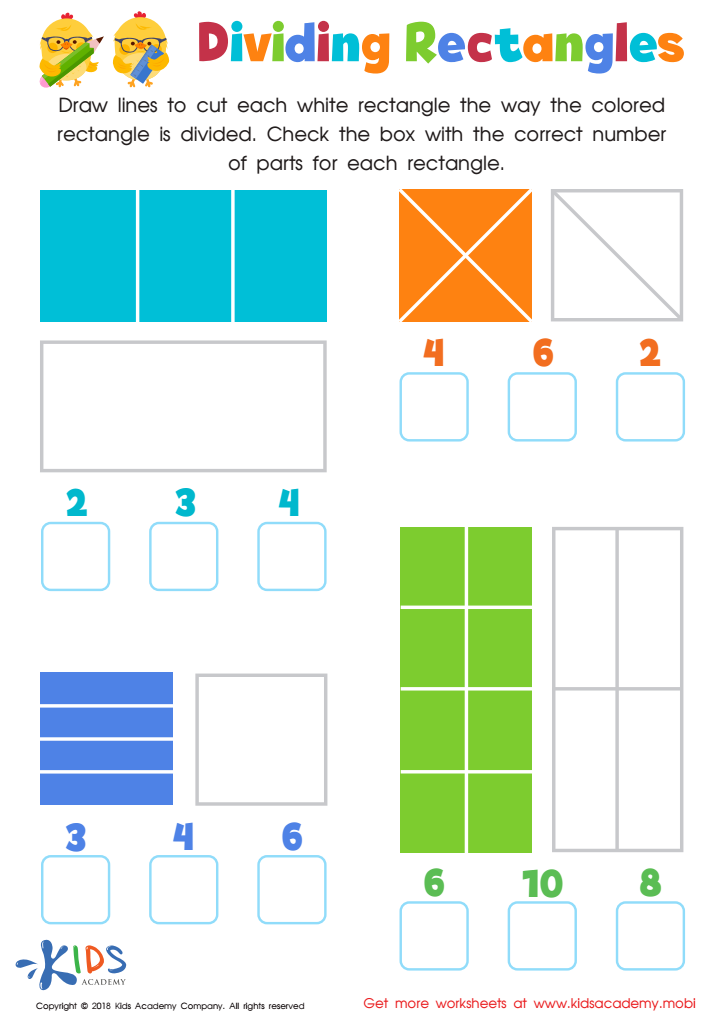

Dividing Rectangles Worksheet
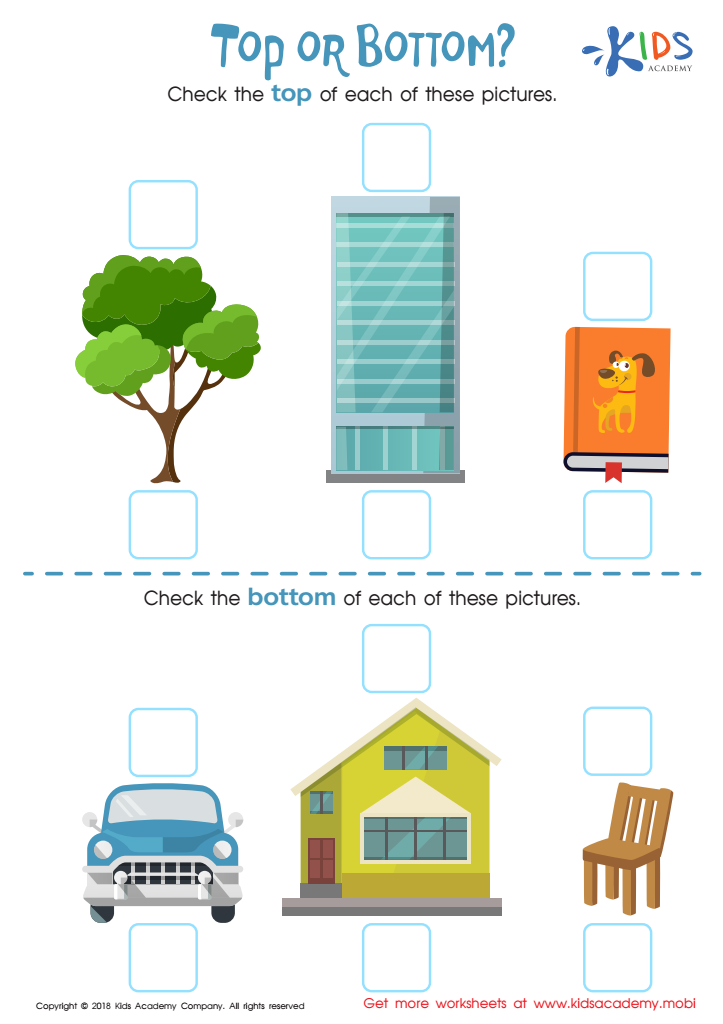

Top or Bottom Worksheet
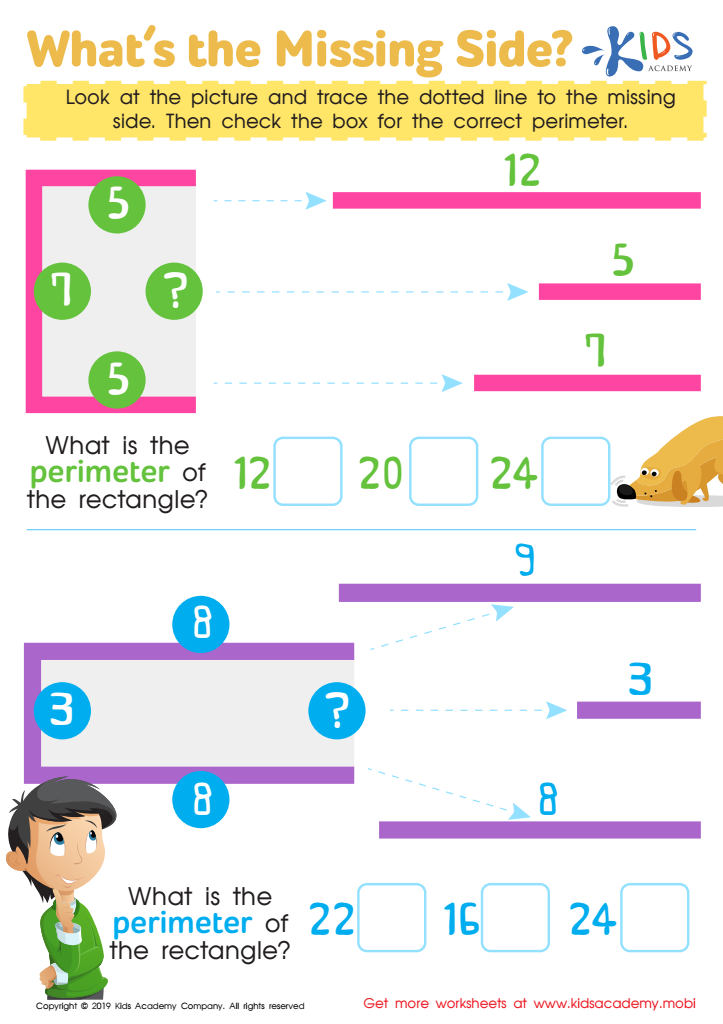

What's the Missing Side Worksheet
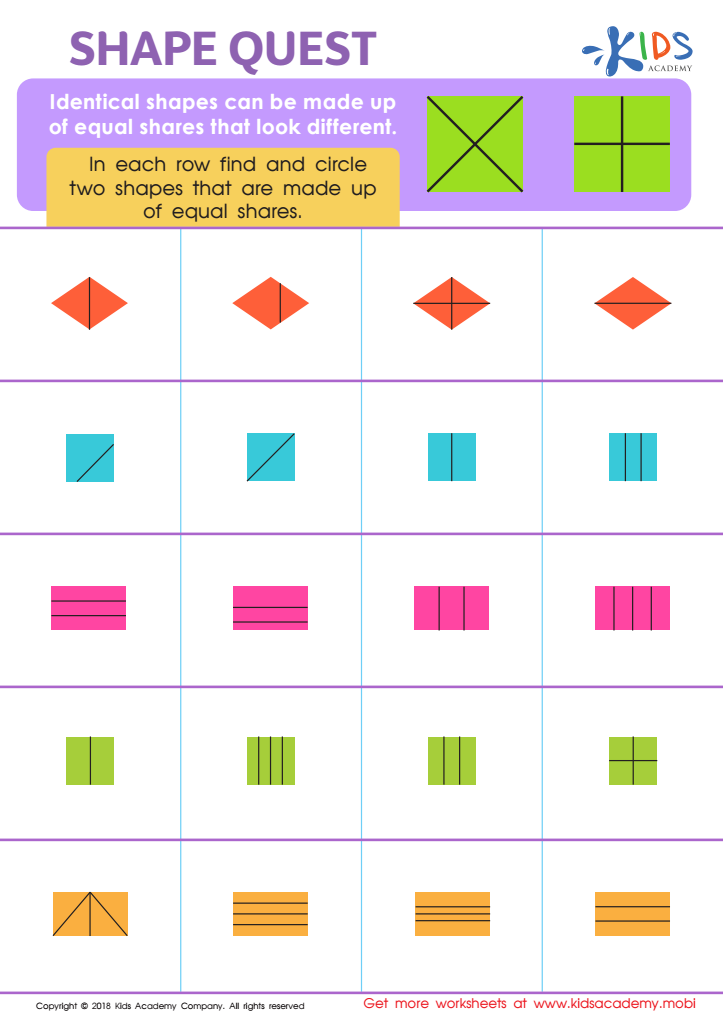

Shape Quest Worksheet
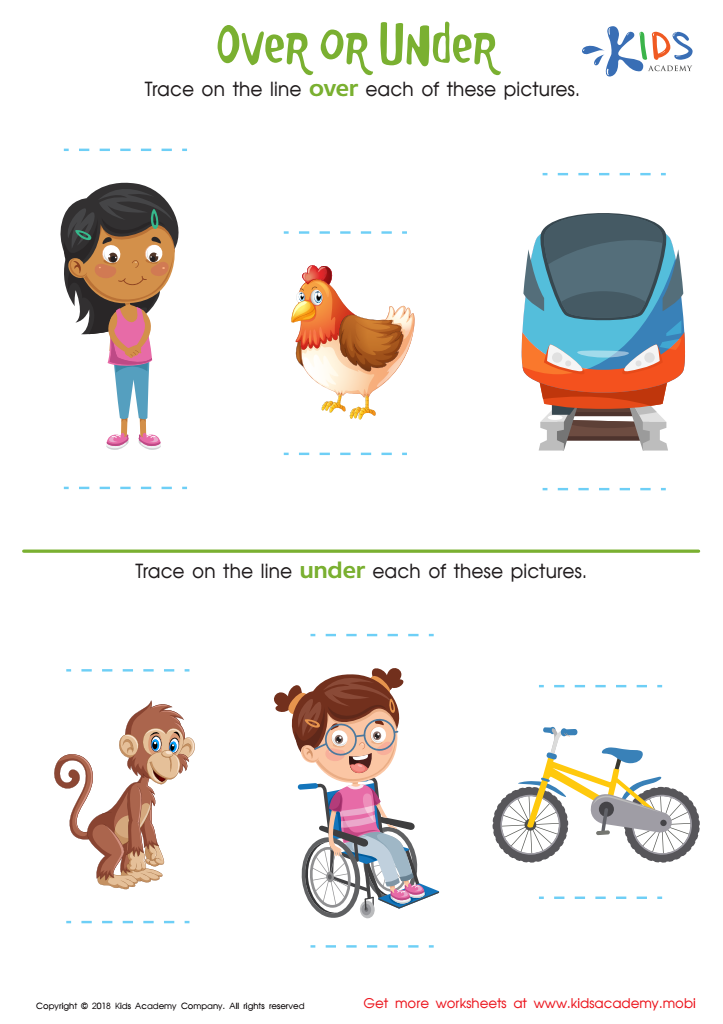

Over or Under Worksheet
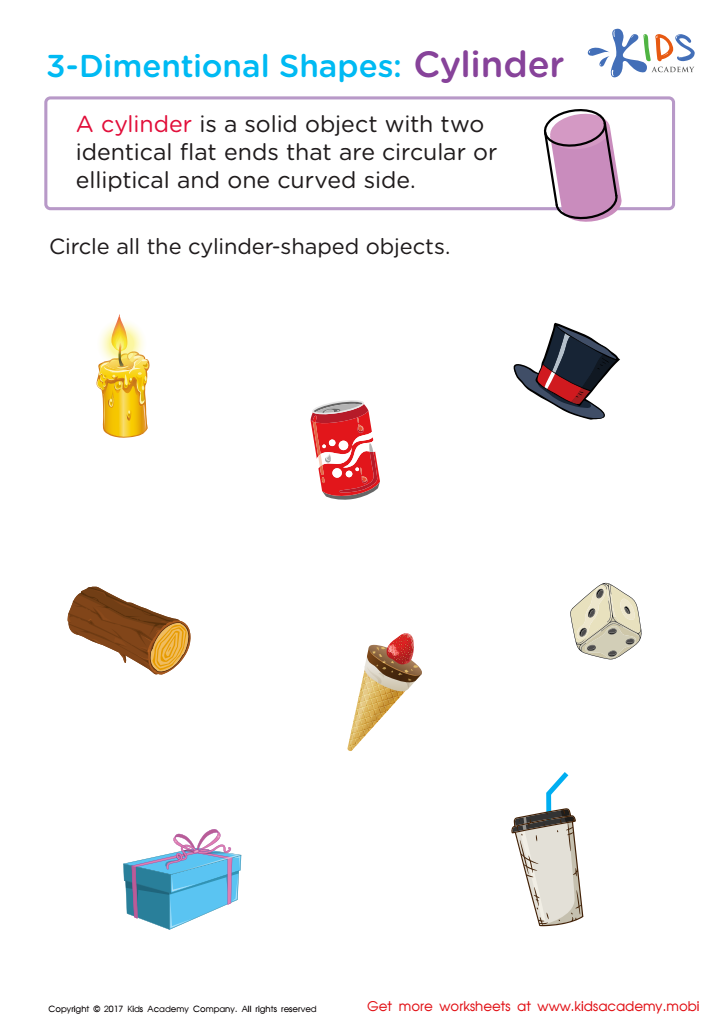

Three–Dimensional Shapes: Cylinder Worksheet
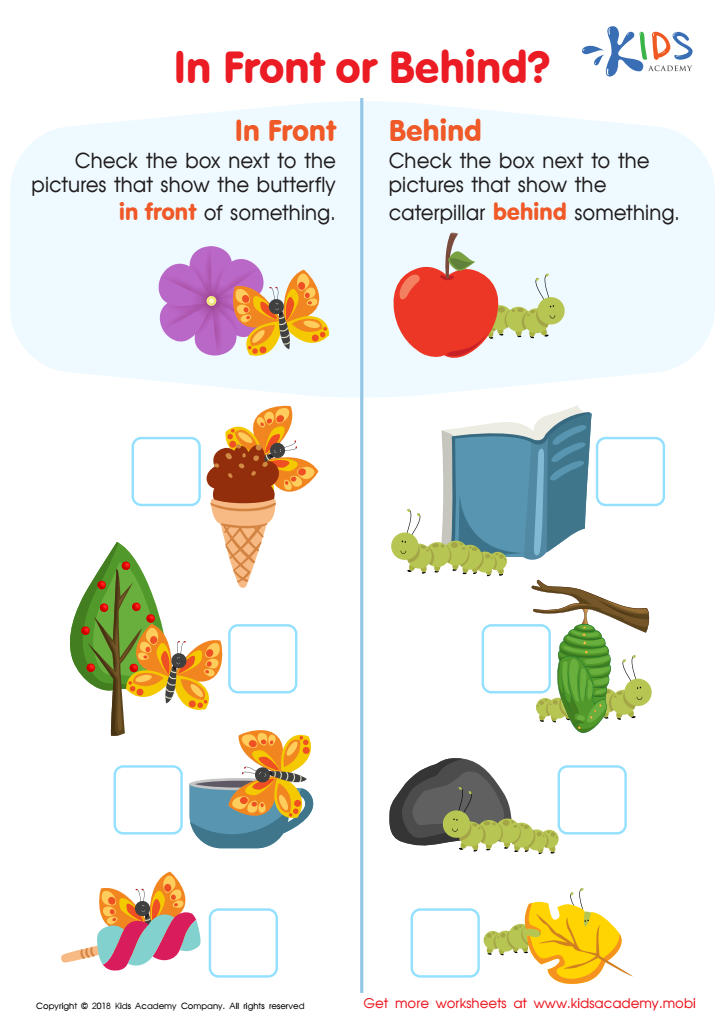

In Front or Behind Worksheet
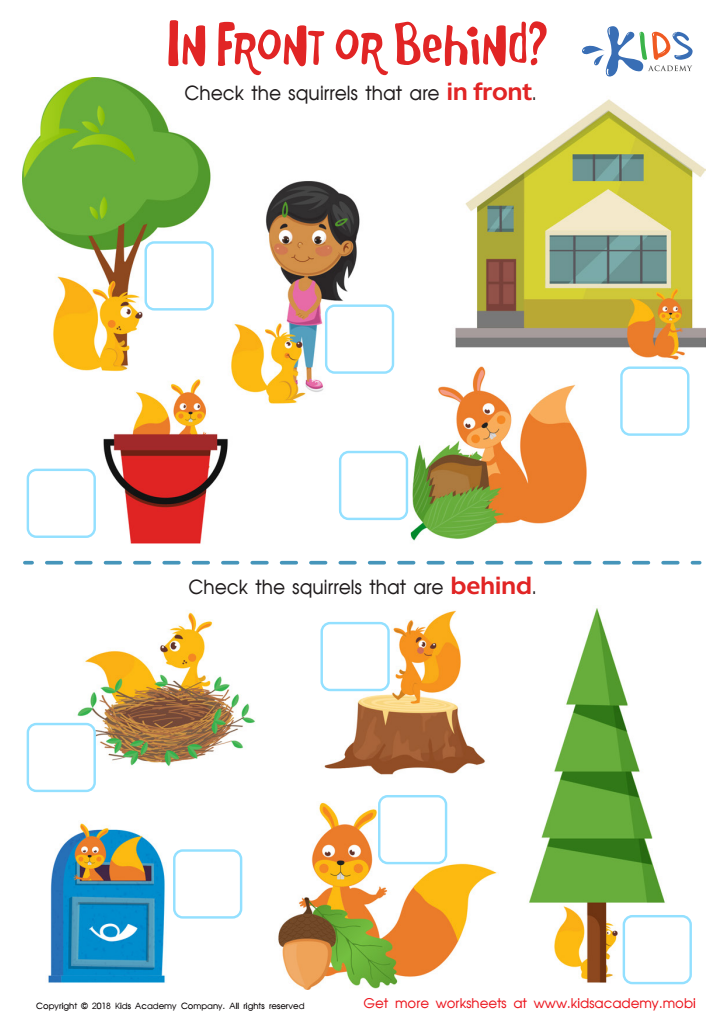

In Front or Behind: Part 2 Worksheet
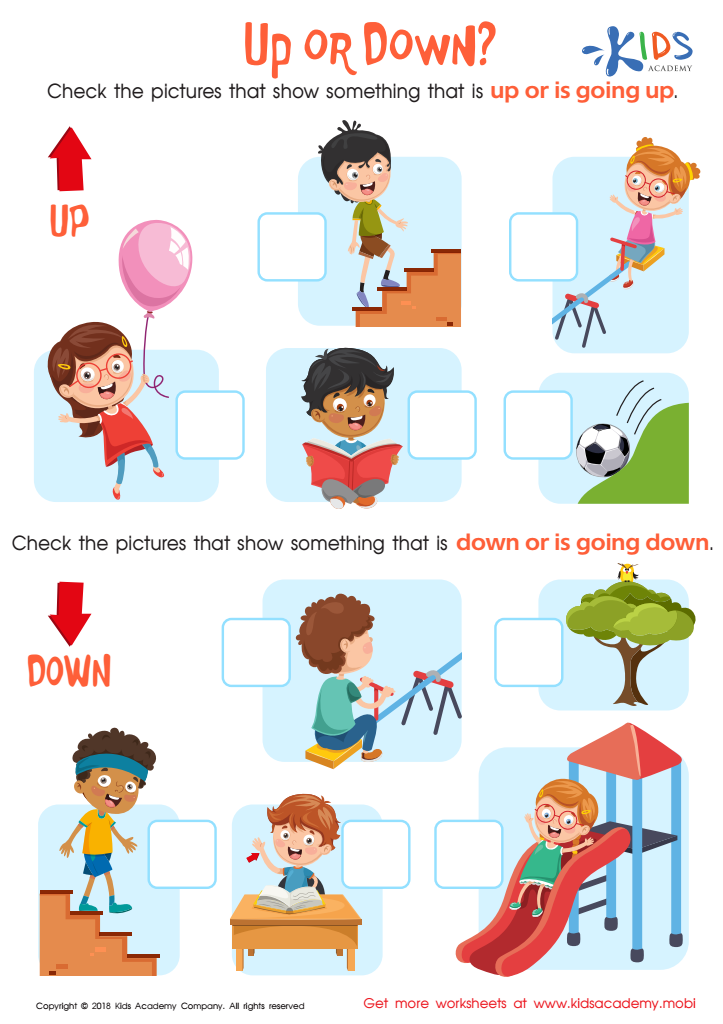

Up or Down Worksheet
Spatial awareness and basic geometry play a crucial role in the early development of children aged 4-8. For parents and teachers, fostering these skills sets a foundation for both academic and everyday activities. Firstly, spatial awareness helps children understand where objects are in relation to themselves and others. This is vital for daily tasks such as getting dressed, navigating the environment, or even packing a backpack.
In an academic setting, early exposure to geometry enhances problem-solving abilities. Understanding shapes, sizes, and the properties of space enriches mathematical thinking and is linked to success in subjects like science and technology. Young learners who develop spatial skills early are often more proficient in complex topics later on, such as algebra and chemistry.
Moreover, spatial awareness and geometry contribute to better motor skills. Activities that involve manipulating objects, drawing, or building help improve hand-eye coordination and fine motor abilities. These skills are fundamental for writing, crafts, and even sports.
Socially, playing with geometric shapes often involves teamwork and collaboration, which nurtures interpersonal skills. Parents and teachers have an opportunity to integrate spatial learning through fun and practical experiences, such as puzzles, building blocks, and interactive games.
Therefore, prioritizing spatial awareness and basic geometry helps develop well-rounded, capable, and confident individuals.
 Assign to My Students
Assign to My Students
















